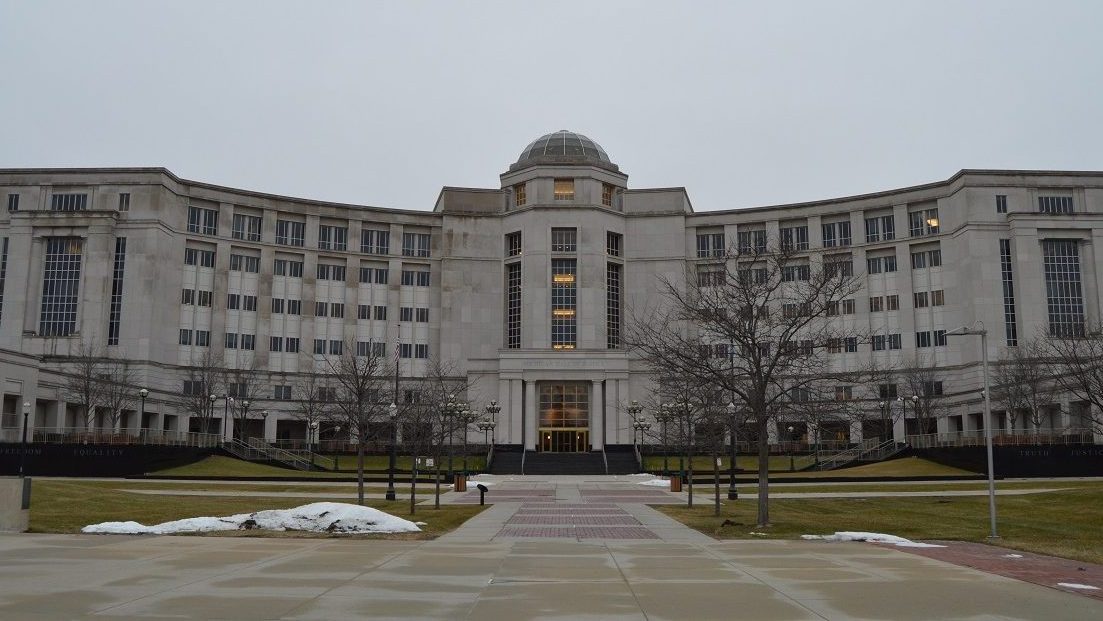Races for MI Supreme Court seats are high stakes and under the radar
In this episode of MichMash, reporter Ken Coleman talks with Cheyna Roth about Michigan Supreme Court candidates and more.

Michigan Supreme Court
Subscribe to MichMash on Apple Podcasts, Spotify, NPR.org or wherever you get your podcasts.
In this episode:
- Ken Coleman, Southeast Michigan economic justice and civil rights reporter for Michigan Advance, talks with Cheyna Roth about two of his recent stories.
- Michigan Supreme Court candidates talked with voters at a recent candidate forum.
- Coleman interviewed Detroit native, author and journalist Aaron Foley on his new book, Boys Come First, and the lack inclusion of Black and queer writers in the publishing industry.
Five Michigan Supreme Court candidates, vying for two seats, spoke with voters on why they should be elected at a recent candidate forum. While the race is considered non-partisan, each candidate has been nominated by a political party.
Candidates include incumbent justices Brian Zahra (R-nominated) and Richard Bernstein (D-nominated), Attorney Kerry Morgan (L-nominated), Rep. Kyra Harris Bolden (D-nominated) and Paul Hudson (R-nominated).
The everyday person might not be up to speed on the supreme court election. Candidates have not been campaigning with commercials and yards signs like past elections, Coleman said. We’re seeing increased attention on this race from the parties and groups that work closely with state policy. Democrats currently hold a 4-3 majority and that could change this election.
“Well the major take away was that the Democrats and Republicans, the two major parties in Michigan clearly want to have a majority on the state supreme court. It helps the party in terms of advocating for policy and interpreting the law,” Coleman said.
The new state supreme court could be looking at several potential issues post-election, Coleman said. Cases reproductive freedom and gender identity could come before the court. The independent redistricting process involving a 13 member commission may also be challenged.
“(T)here is a feeling that there may be an attempt to push the envelope on this process if you will, meaning challenge the process that was carried out the last year and how our congressional and state legislative lines are drawn,” Coleman said. “I don’t know that that is necessarily a done deal and could find itself before the court in upcoming months.”
Also on the ballot is Proposal 3, a ballot initiative that would ensure a “fundamental right to reproductive freedom.” Coleman followed abortion rights activists, from across the country, as they canvassed in Detroit and learned more on reproductive rights issues in the state. Michigan is an early voting state and the idea was to have executives on the ground in a voter rich area.
“Detroiters as a body generally support those efforts if they’ve been supported and lifted up by the Michigan Democratic party or either people who are left of center and I think the proposal most likely will do very well in Detroit proper,” Coleman said.
Coleman caught up with Detroit native, author and journalist Aaron Foley during banned book week. Foley recently wrote his debut novel, Boys Come First.
“What he’s said in recent weeks is that this was a dream for him, always wanting to write a novel, or to some extent fiction as opposed to the day-to-day grind that you or I carry out as people who write about the news of the moment,” Coleman said.
Foley has talked and written a lot about the lack of Black and queer inclusion in newsrooms, something he also sees in the publishing industry, Coleman said. There has not been a wide enough acceptance of Black and queer authors.
“It’s hard to be activists as a journalist,” Coleman said. “We’re taught not to be part of the story, but what we found in the African American community, and this certainly is a thrust in the National Association of Black Journalists, advocacy is important. It’s important that newsrooms look like the community they represent.”
Related posts:
- Michigan Supreme Court tosses redistricting lawsuit
- Exploring the pros and cons of Michigan’s November Ballot proposals
- Detroit Evening Report: Dearborn book bans spark protest and support
Photo credit: Jake Neher/WDET.
Trusted, accurate, up-to-date.
WDET strives to make our journalism accessible to everyone. As a public media institution, we maintain our journalistic integrity through independent support from readers like you. If you value WDET as your source of news, music and conversation, please make a gift today.

